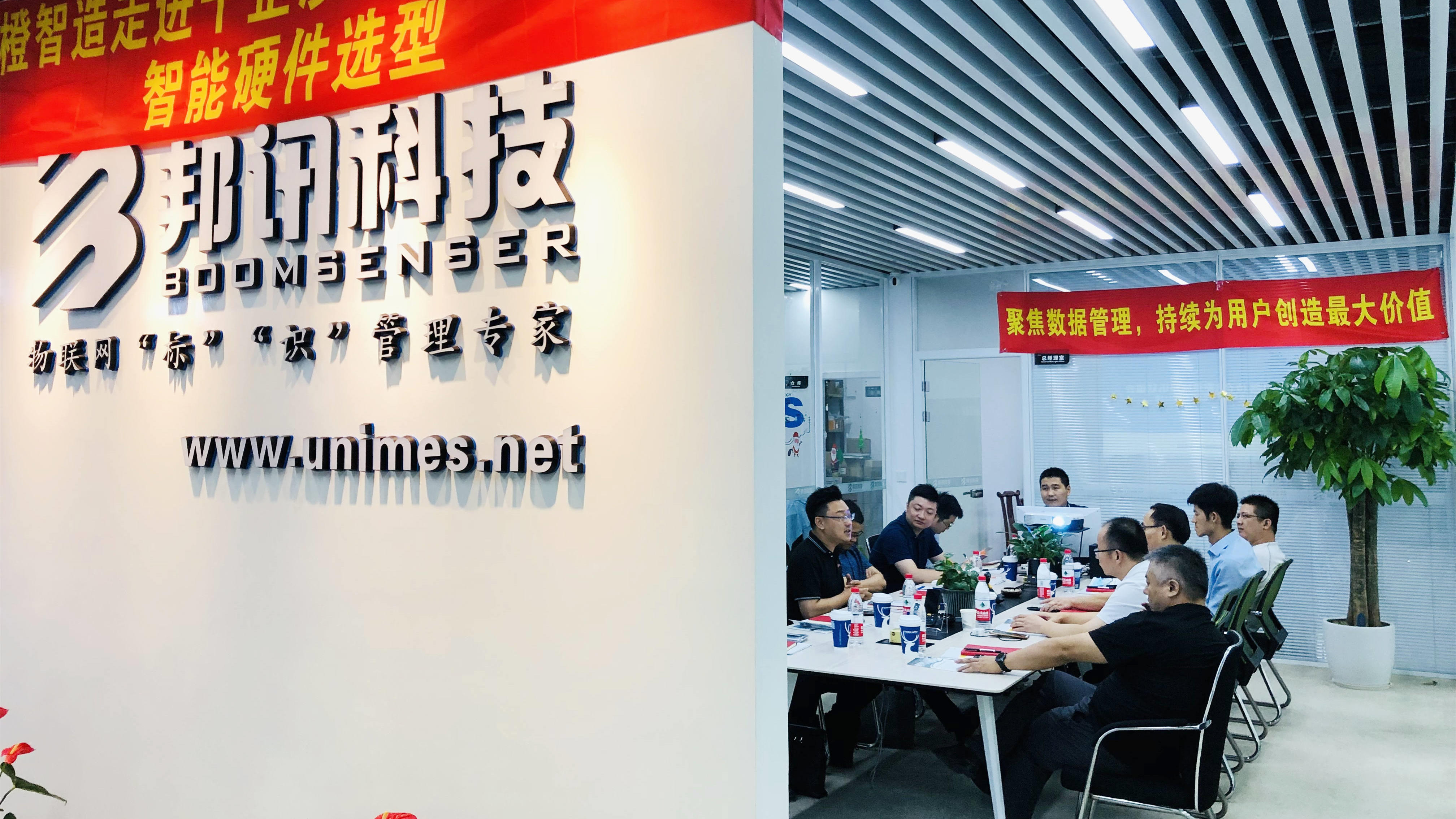
Unimes hosts inaugural Industry Partner Entrepreneur Salon
On 16 July, Unimes held the first seminar salon for industry partners at the company's headquarters in Suzhou, China, on the topic of hardware selection for enterprise data management. We invited 15 companies and nearly 20 elite entrepreneurs to this first meeting.
The participants were all first-class quality enterprises from the manufacturing industry in East and South China, and there were also excellent entrepreneurial representatives from AIDC and the barcode industry. It can be said that this conversation has excellent enterprising significance for discussing smart manufacturing and enterprise data management in the 5G industrial revolution.
We hope to take this opportunity to meet and get to know more partners, and also to use this as a chance to help various companies to assist each other, to discover the same points of interest, to explore more business opportunities, and also to discuss the future of intelligent manufacturing and the AIDC field.
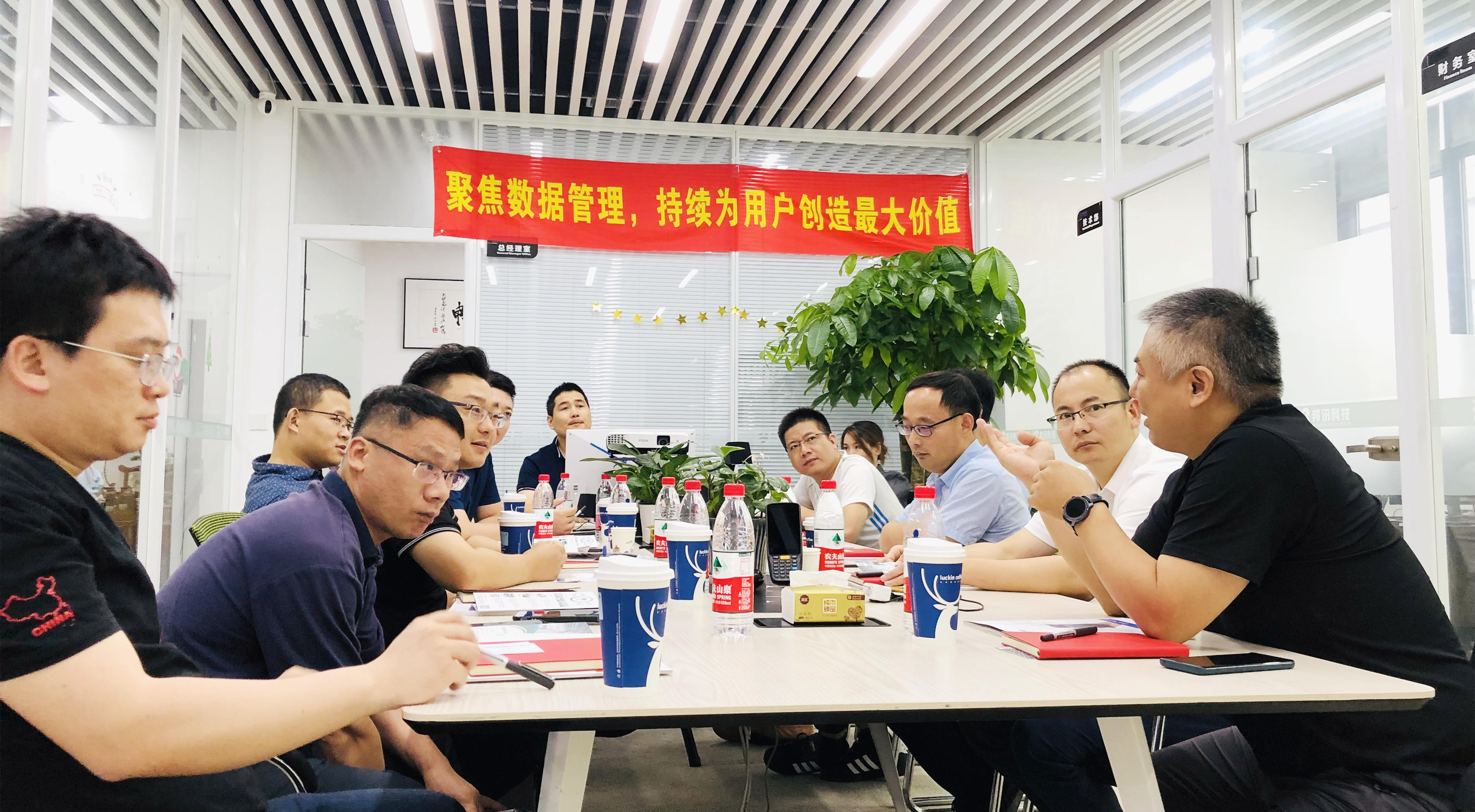
Entrepreneurs discuss the future of smart manufacturing factories with barcode technology
Unimes China, as the organizer of this event, adheres to the mission and values of focusing on enterprise data management and continuously creating maximum value for users, hoping to do a good job as a linker, introducing and assisting more enterprises, helping them to achieve better business success is our long-term goal. The event was also organised with the intention of making friends, so we were able to interact with each other in a relaxed and enjoyable atmosphere.
In 2020, a fleet of 10 diverse factories – in industries from pharmaceuticals to electronics – have been able to do just that by adopting the technologies of the Fourth Industrial Revolution (4IR) at scale. They now join 44 others in the World Economic Forum’s Global Lighthouse Network. Alibaba, a Chinese company we have been working with for a long time, is among them.
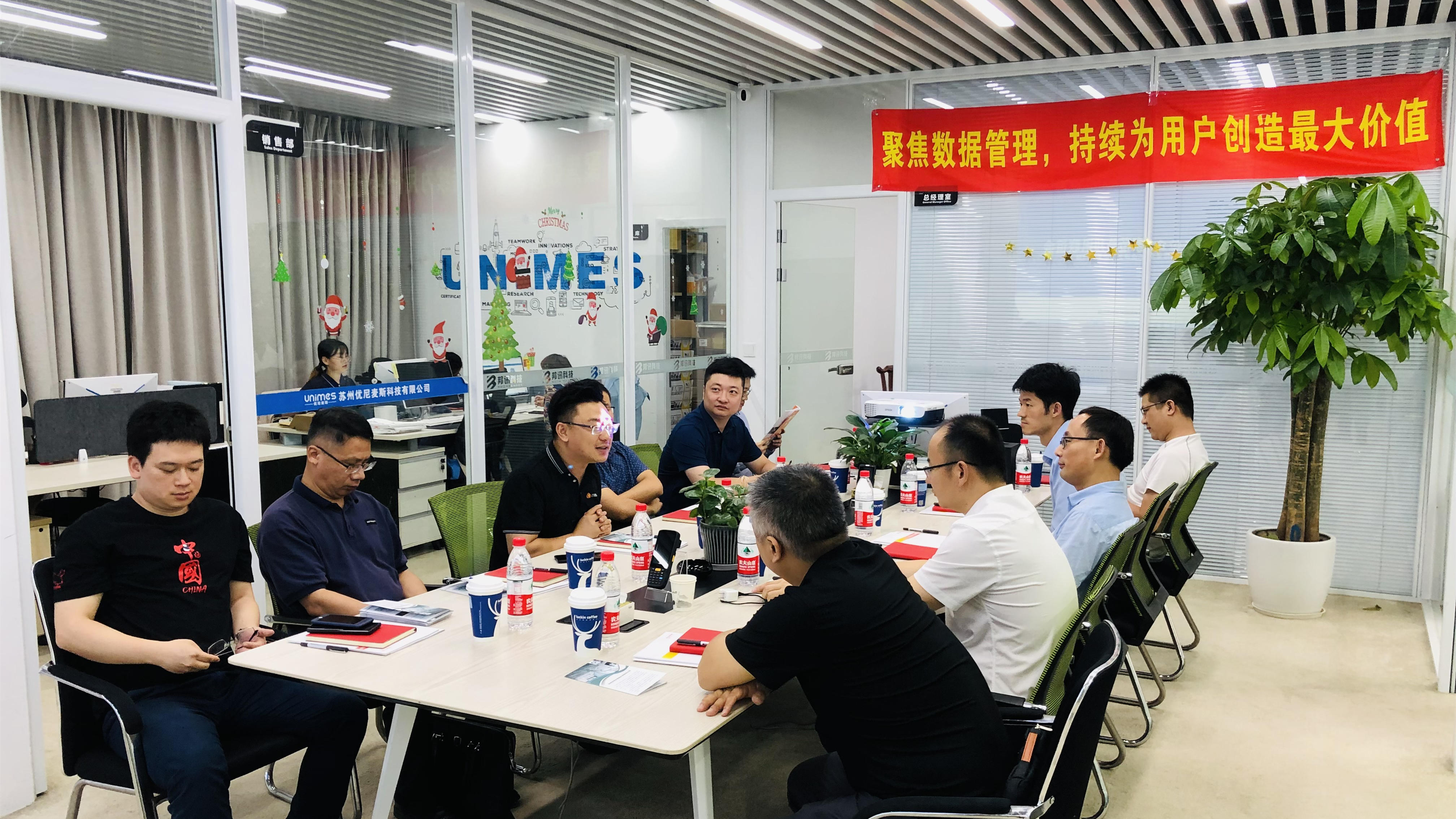
Presentation by an entrepreneur from the China Lighthouse Factory
Combining powerful digital technologies with consumer insights, Alibaba’s pilot Xunxi factory has brought a fully digitized new manufacturing model to life. It empowers end-to-end, on-demand production based on consumer needs, and enables small businesses to be competitive in the fast-paced fashion and apparel market by shortening delivery time by 75%, reducing the need to hold inventory by 30% and even cutting water consumption by 50%.
Among the entrepreneurs present, today were many pioneers at the forefront of smart manufacturing, and like Unimes, they are delivering their own products and solutions to China's lighthouse factories. One of the topics raised by the entrepreneurs who supply AGVs and AMRs to lighthouse factories, and who were also discussing data collection projects for AGVs and AMRs with Unimes' CEO, Mr Mark, was at one point the focus of the audience, and it was discussed that Chinese companies are now the most courageous and ambitious in many cutting-edge areas of manufacturing and that they are bold enough to try new systems and use new technologies. Using new technologies, relying on new technologies such as cloud computing, IoT and artificial intelligence, and having excellent and in-depth innovations in business processes, management systems as well as industrial internet and data systems, which can form a new form of rapid response to market demand, innovative operation models and green and sustainable development, It can be said that the worldwide achievements of Chinese industry today are precisely the result of the joint efforts of countless small and medium-sized molecular enterprises behind the scenes.
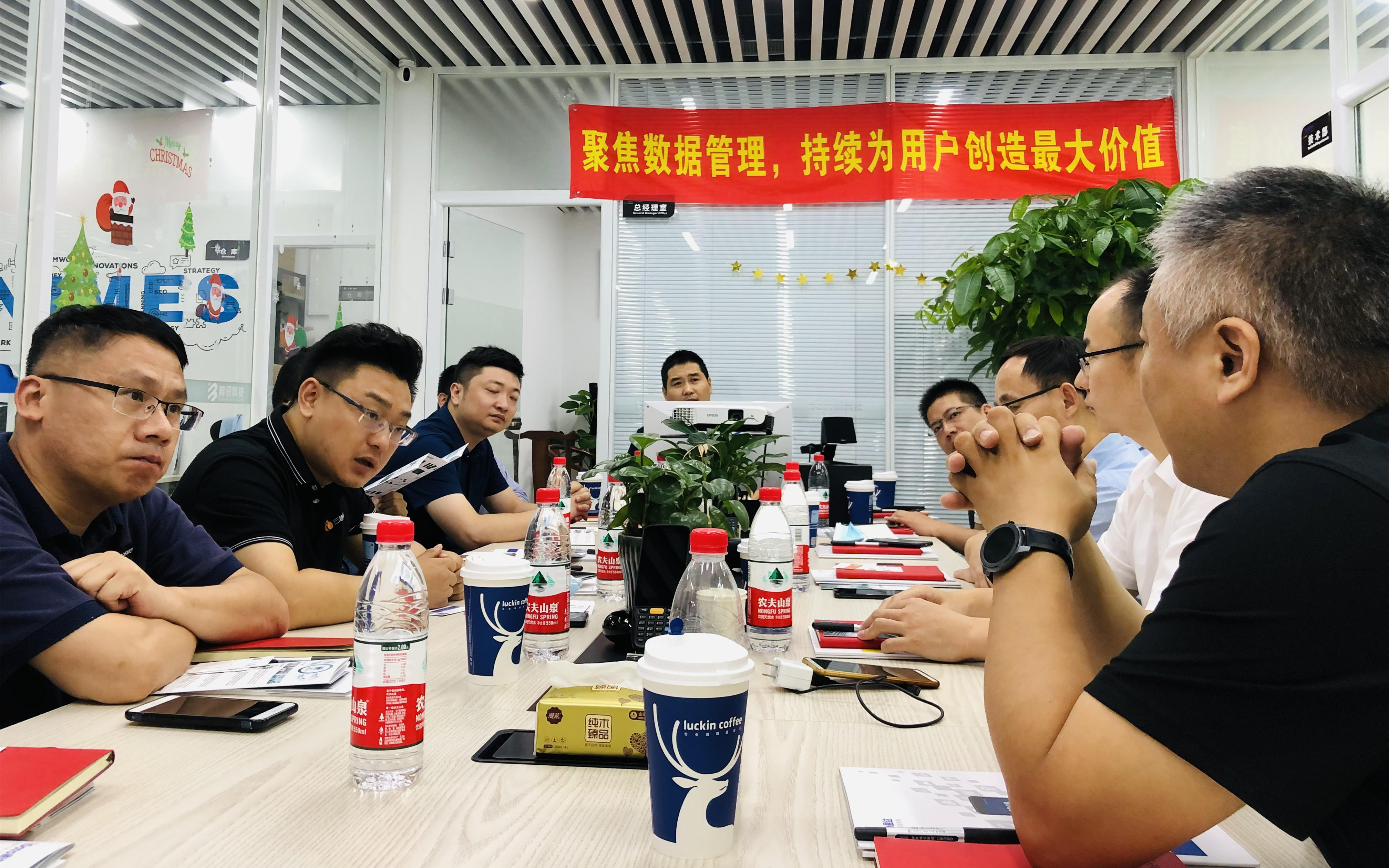
Participating entrepreneurs discuss the future application of smart PDA and data collection technology
On the other side, the participants also discussed the same solutions in the field of ERP and MES, combining software and hardware. There was also a focus on the advantages and prospects of low-code technology models in the current market.
Especially in lightweight hardware and software solutions such as PDAs, the low-code model can significantly reduce costs and improve delivery and collaboration efficiency. In the case of Unimes, for example, we have provided a one-stop solution for WMS software and hardware for RFID UHF handheld smart terminals in a warehouse project for LG China, and also in numerous projects overseas for Unimes, where customers have often demanded a one-stop solution, although each time the solution could be completed brilliantly, although they were smaller projects and more precise requirements, not complex, due to the traditional software solutions from start to finish, research to delivery, the project cycle is longer, also due to the technical barriers, cost control is also one of the difficulties of the enterprise.
The combination of PDAs and low-code technology platforms has the opportunity in the future to address these issues in a targeted manner and at a significantly reduced cost. At the same time, the value of the new technology lies in the ability to produce highly business-adapted hardware and software solutions, alleviating the resource dilemma of low-value requirements. The attendees were also unanimously positive about the development of this technology.
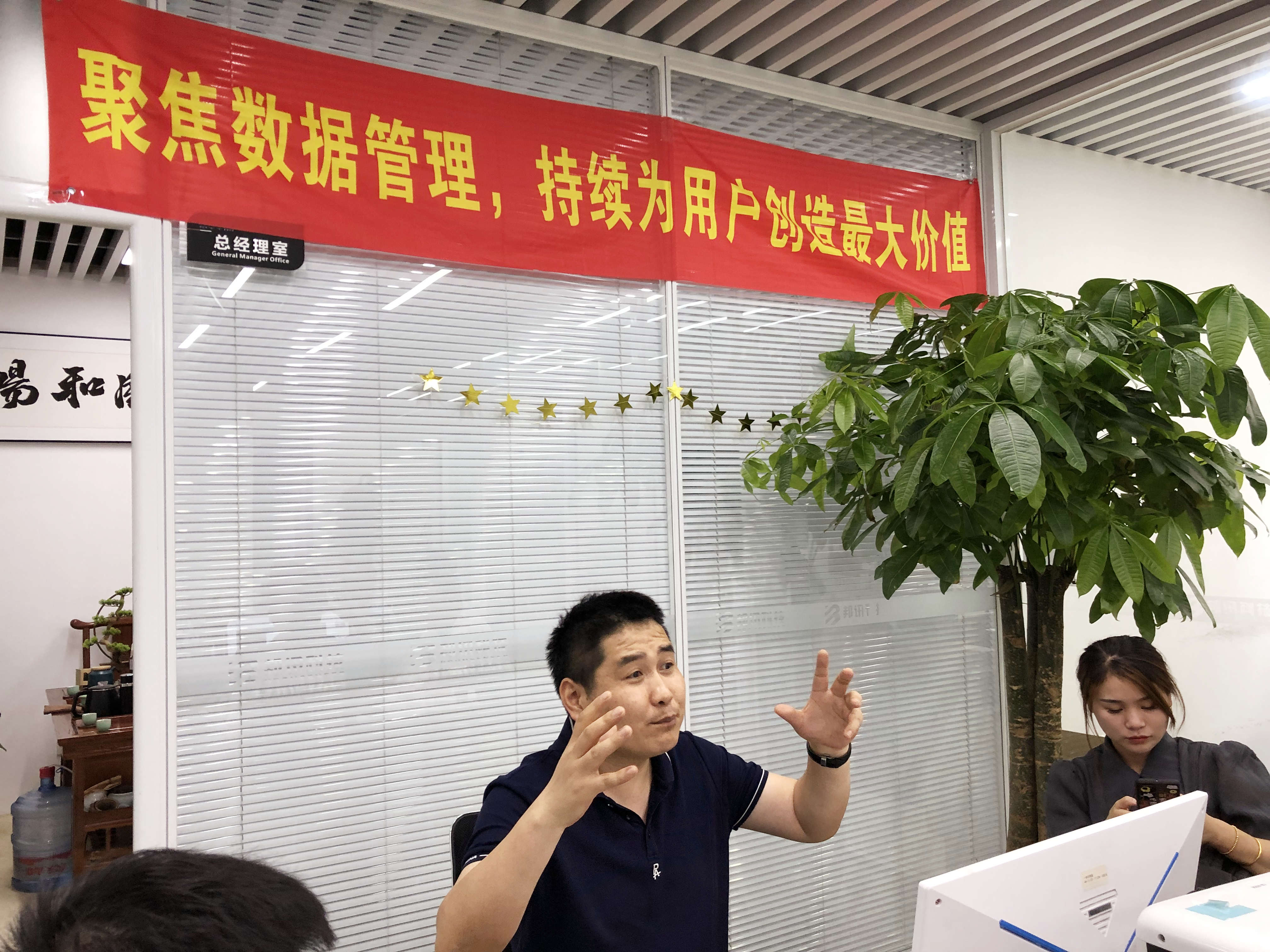
Unimes' CEO Mr. Mark talks about the company's AIDC technology accumulation and industry trends
Finally, in the modernisation of the enterprise, the data management segment, ERP products are a category that will always be of high concern to the industry, and across 2021, the requirements of enterprises for ERP solutions are becoming more stringent and more precise.
Although Unimes is primarily a hardware-oriented company, we also have a unique perspective on the combination of good ERP and PDA.
1 Rapid adoption of new and evolving SaaS technologies
Unlike traditional systems, next-generation technologies such as artificial intelligence (AI) can help cloud-based systems improve functionality quickly without the need for regular updates. Today, ERP systems do not require additional or new input from end-users and are becoming easier to manage and use.
2 Extending the value of existing ERP systems
Extending and integrating legacy software through cloud applications can complement and enhance important tasks. This approach can breathe new life into legacy ERP systems, thus providing a great opportunity for companies to start adopting cloud functionality.
3 Access to new technologies
By finding cloud applications that complement legacy ERP software modules, you can immediately take advantage of rapidly evolving new technologies and improve user paradigms. These technologies can provide free systems that deliver immediate business functionality and value, without fundamental changes to your operations.
4 Reduce third party dependencies
The reporting and analysis capabilities of legacy systems often require the involvement of a third-party provider to generate business intelligence. Using cloud applications from your legacy ERP provider can often produce the same or better intelligence without the need for additional suppliers.
5 Evolving your financial system
Legacy systems do not support modern reporting engines. Cloud technology was born and developed in the last decade. As a core concept, it takes a completely different mindset and understands not only the possibilities of what can be achieved with an ERP platform, but also what is required for success.
6 Stronger security resources
Cloud solution providers have large, full-time teams dedicated to proactively monitoring cloud security issues and threats 24 hours a day and keeping systems up-to-date.
7 Attracting talent
A new generation of young people has grown up using seamless technology that is mobile, easy to use and always-on. No company can continue to recruit good talent purely by deploying technology on-premise, no matter what age group those people are.
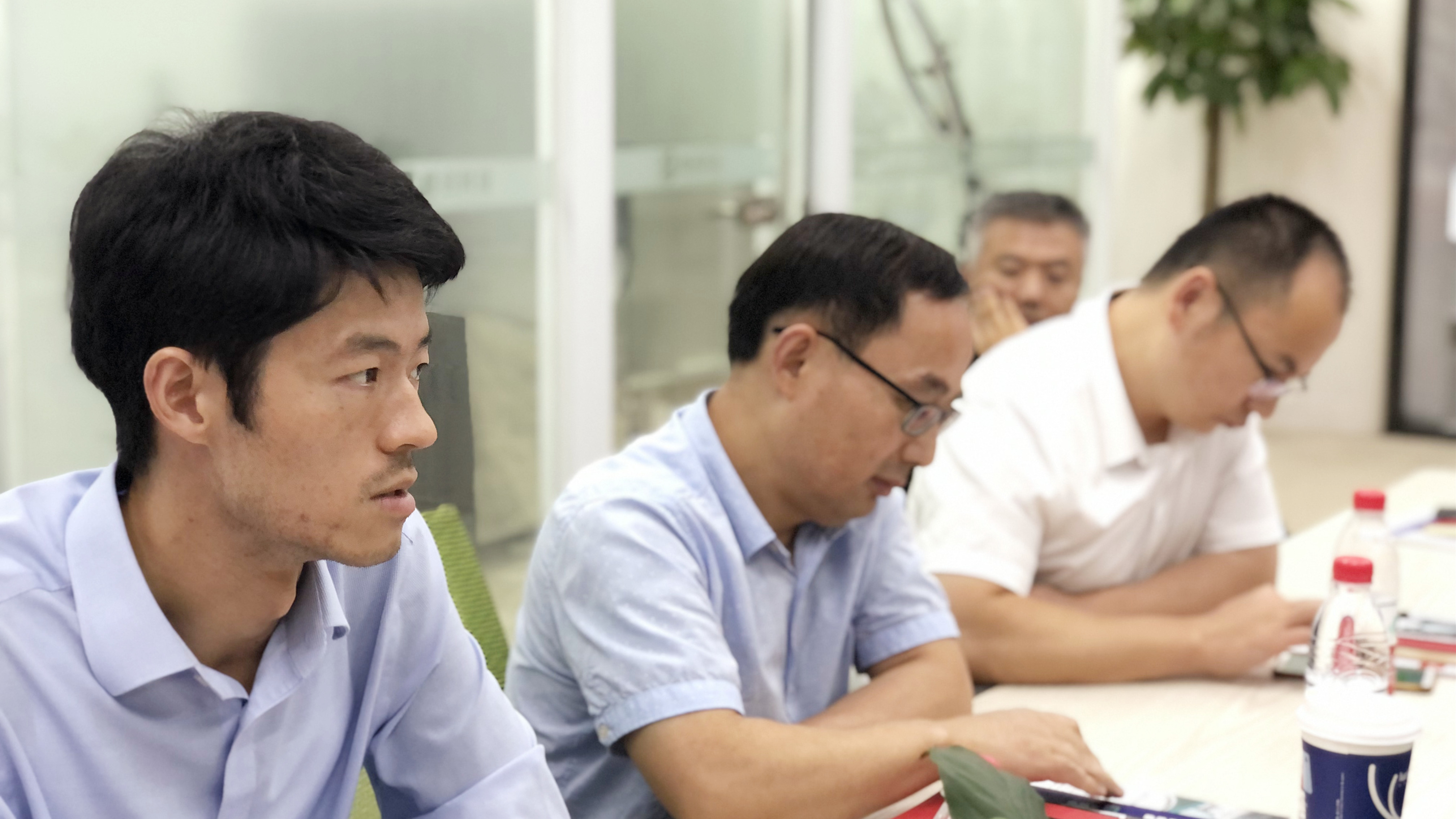
SAP China participants provide details on the implementation of SAP's China localization solutions
Unimes and our partners at the Forum identified four shifts in the future of manufacturing and the enterprise supply chain, which are precisely where data management and PDA hardware and software solutions can be of use
Improved agility and customer-centricity across the end-to-end manufacturing and supply chain facilitates faster recognition of customer preferences.
Supply chain resilience provides a competitive advantage, requiring connected, reconfigurable n-tier supply ecosystems and regionalization.
Speed and productivity through increased levels of automation and upskilling and reskilling efforts.
Eco-efficiency to ensure compliance with an increasingly complex regulatory landscape.
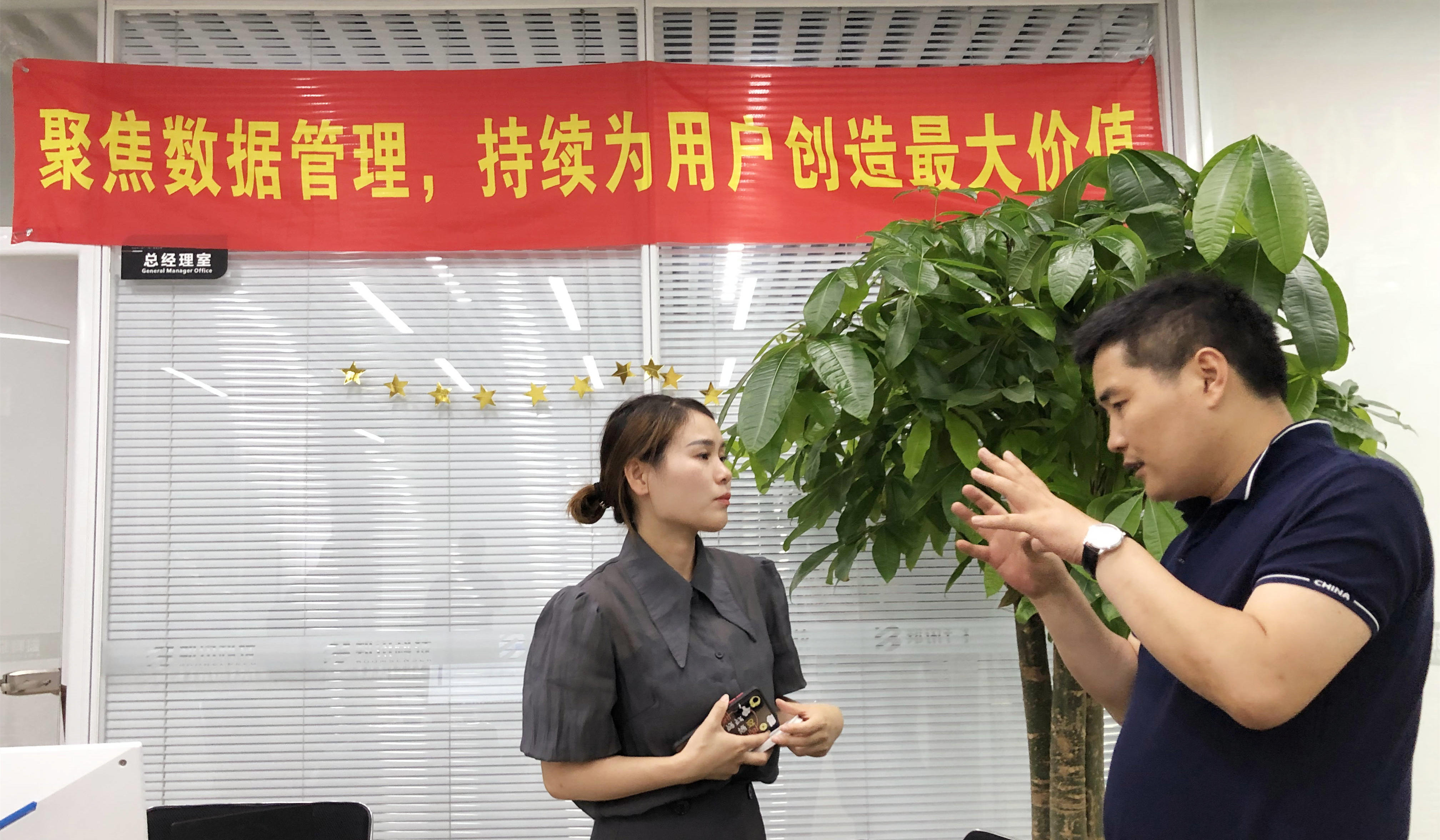
Unimes' CEO Mr. Mark discusses smart PDA selection with partners
As mentioned in the article, lighthouse enterprises are key to helping shape and realise a stronger, more resilient and inclusive future in which creative entrepreneurship and technological innovation can benefit private enterprise and society as a whole, as well as the natural environment. And Unimes is aspiring to be just such a company, a quality business that continues to create value for its users and society, and we are moving forward on this path, working with our partners, our customers, to create a better future together.
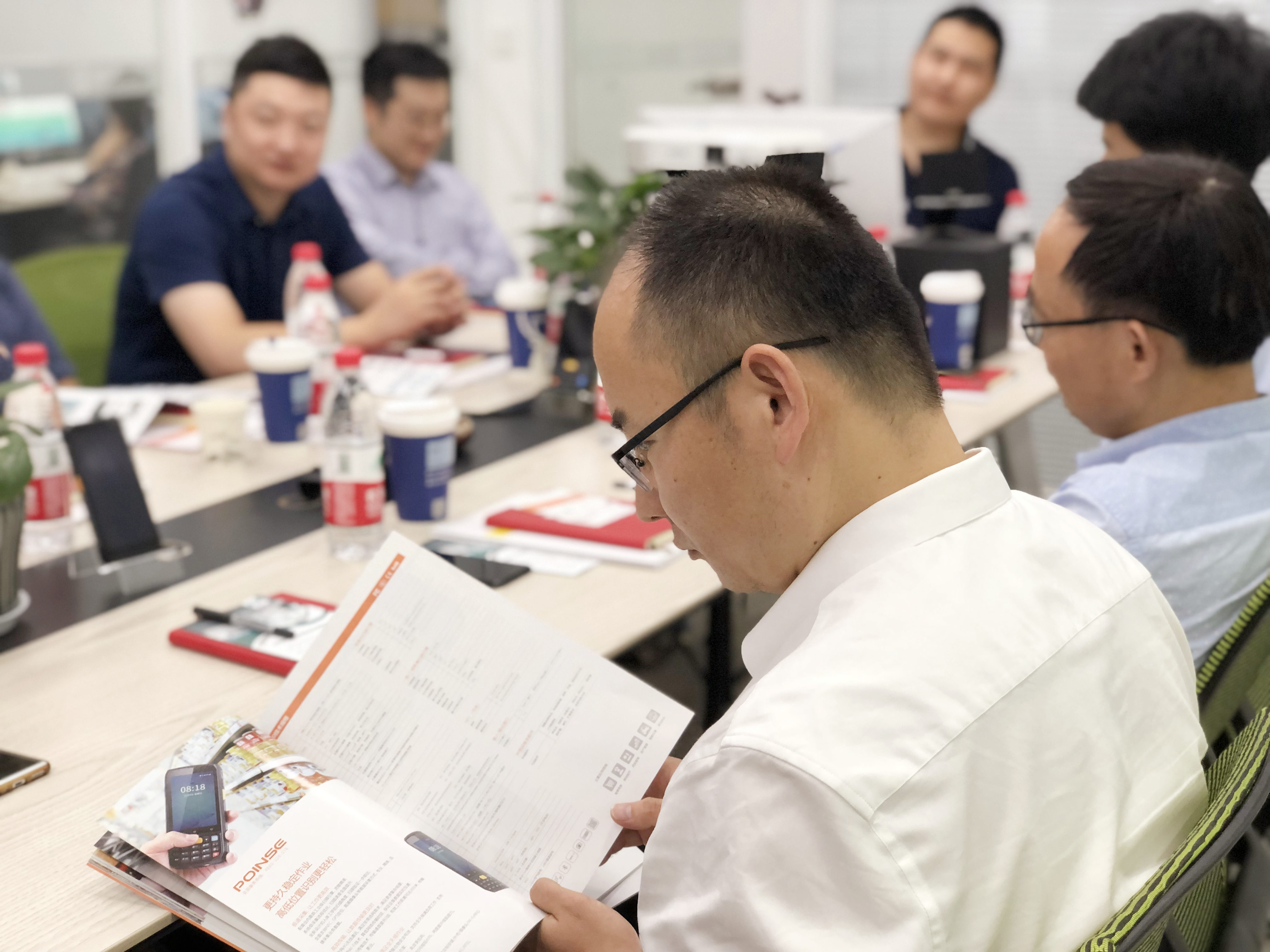
Participating entrepreneurs look through the Unimes product catalogue
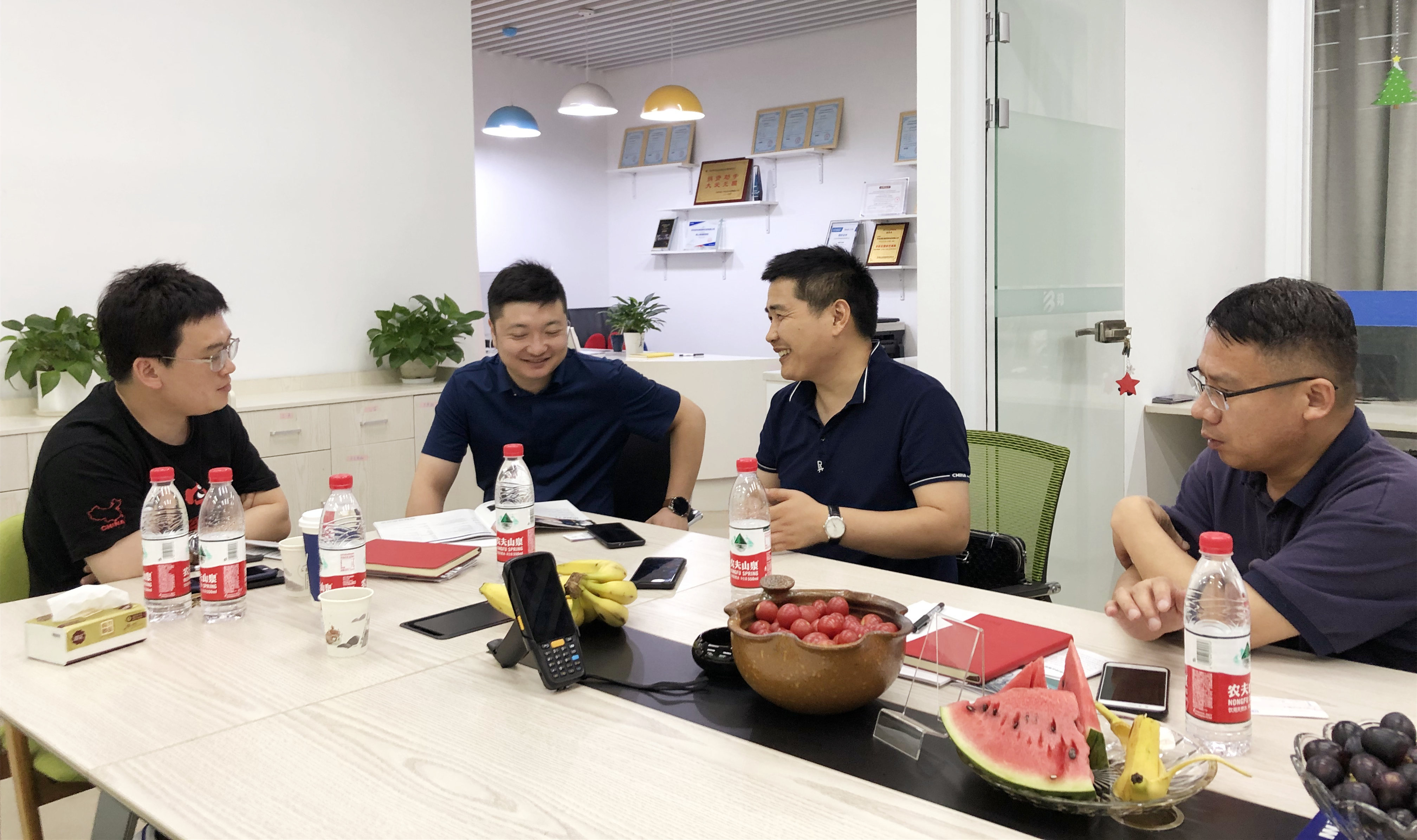
Unimes' CEO Mr. Mark discusses smart PDA selection with partners
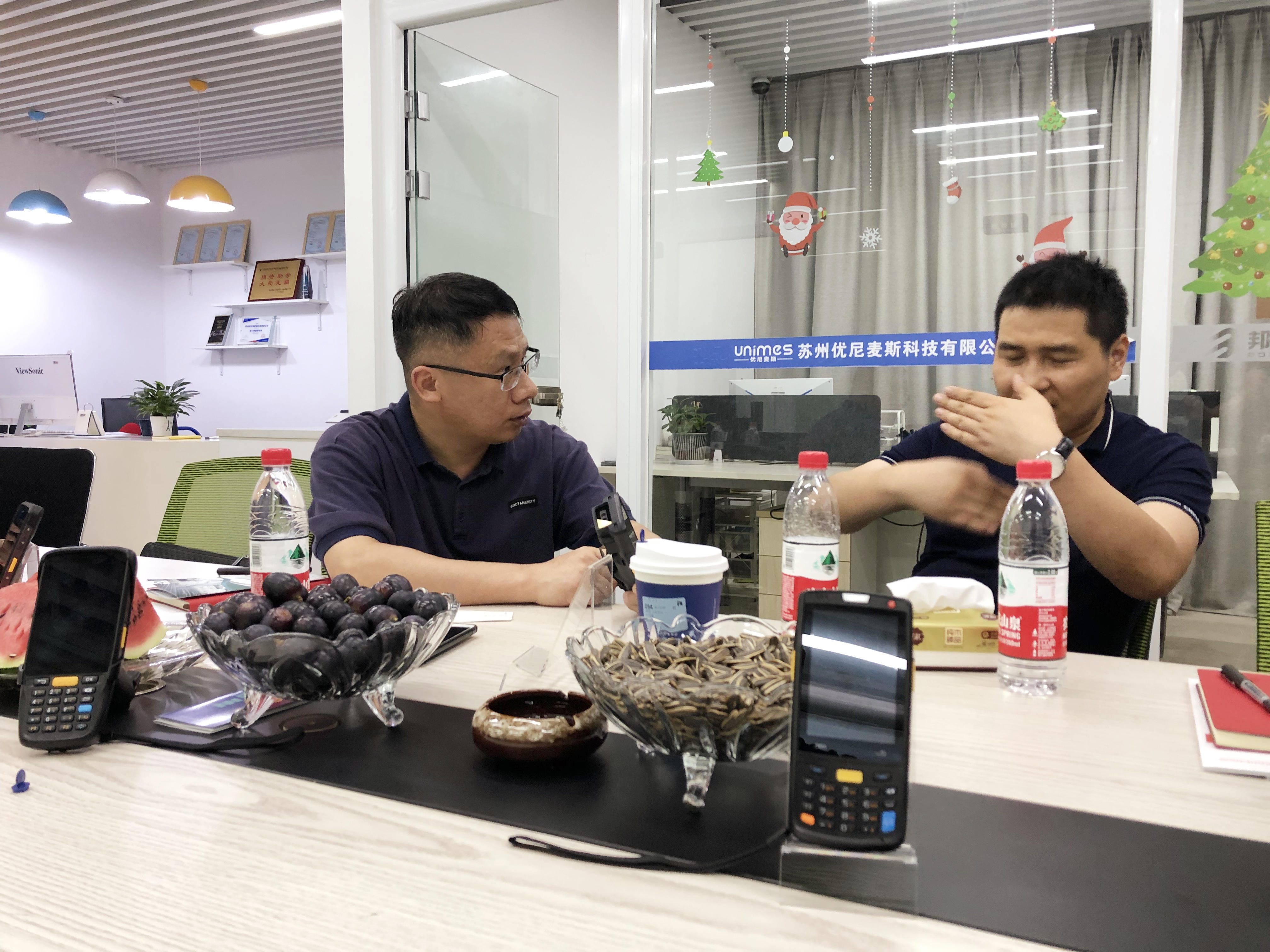
Unimes' CEO Mr. Mark discusses smart PDA selection with partners
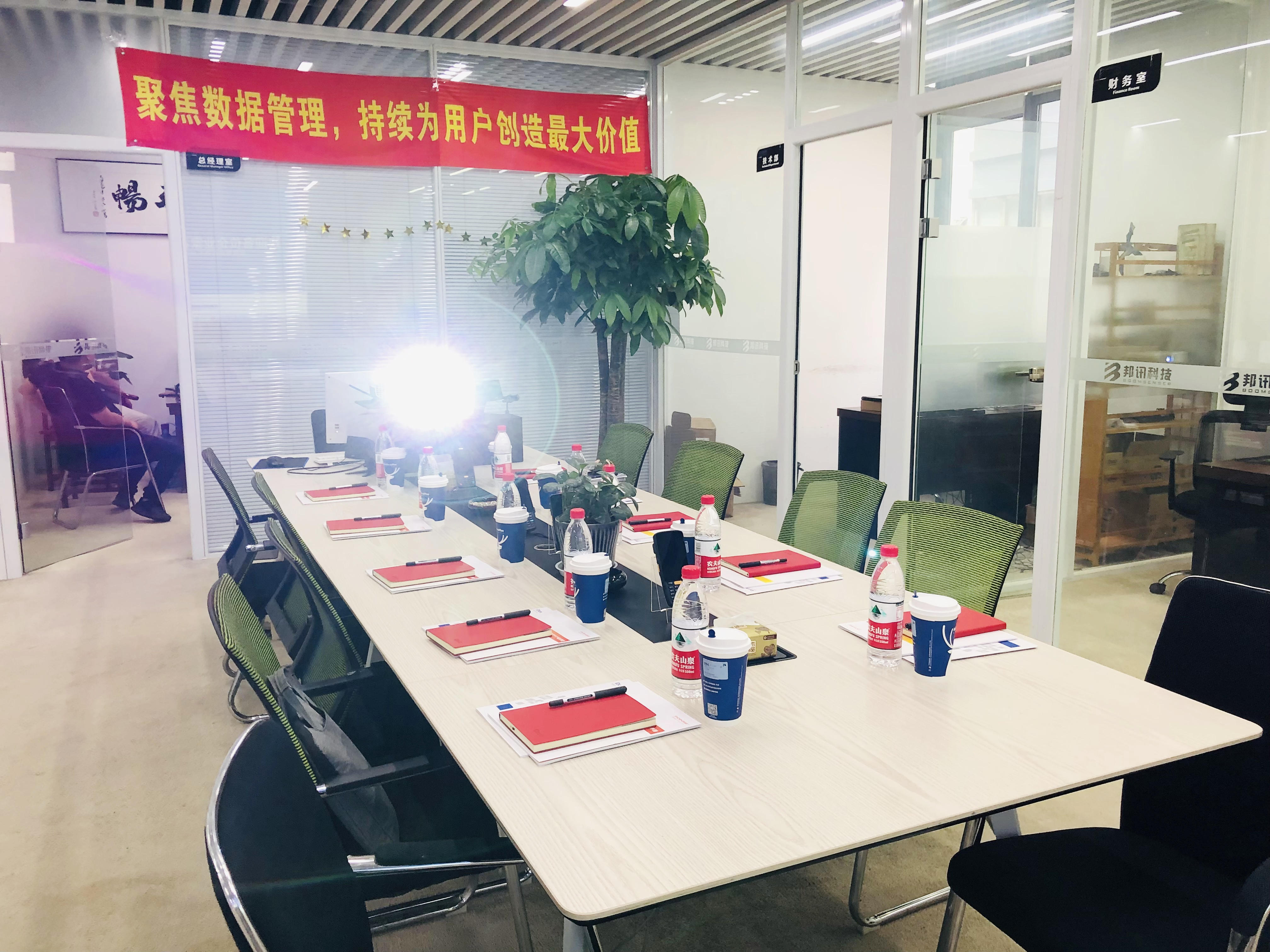

Copyright © Suzhou Unimes Group Co., Ltd. All Rights Reserved | Sitemap | Technical Support: 